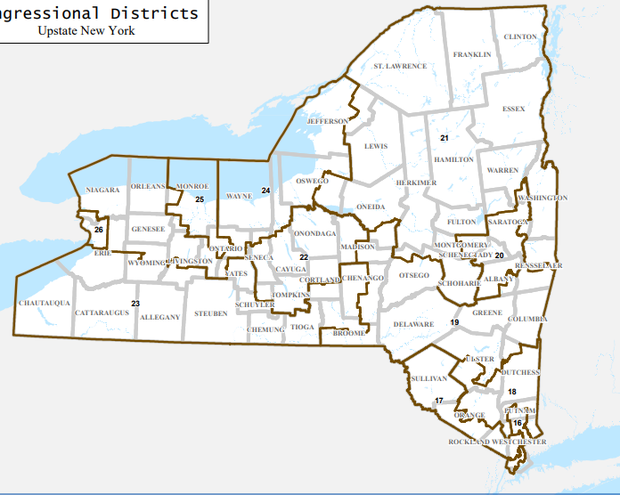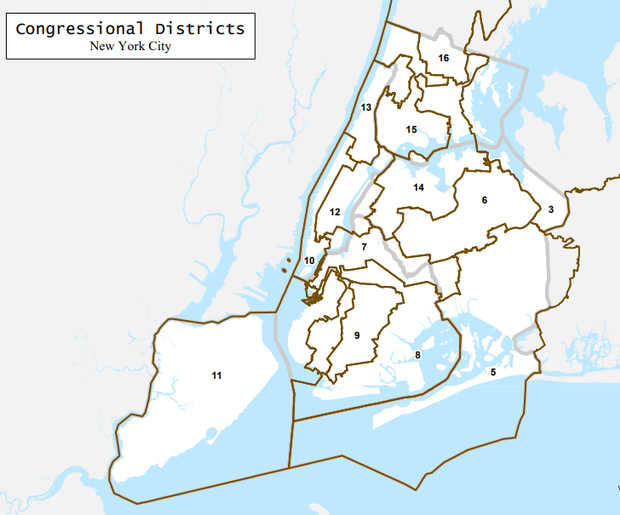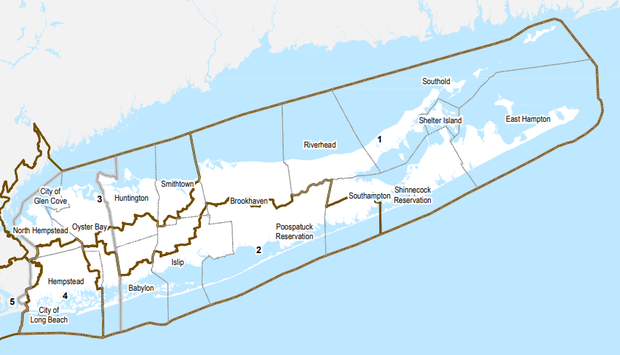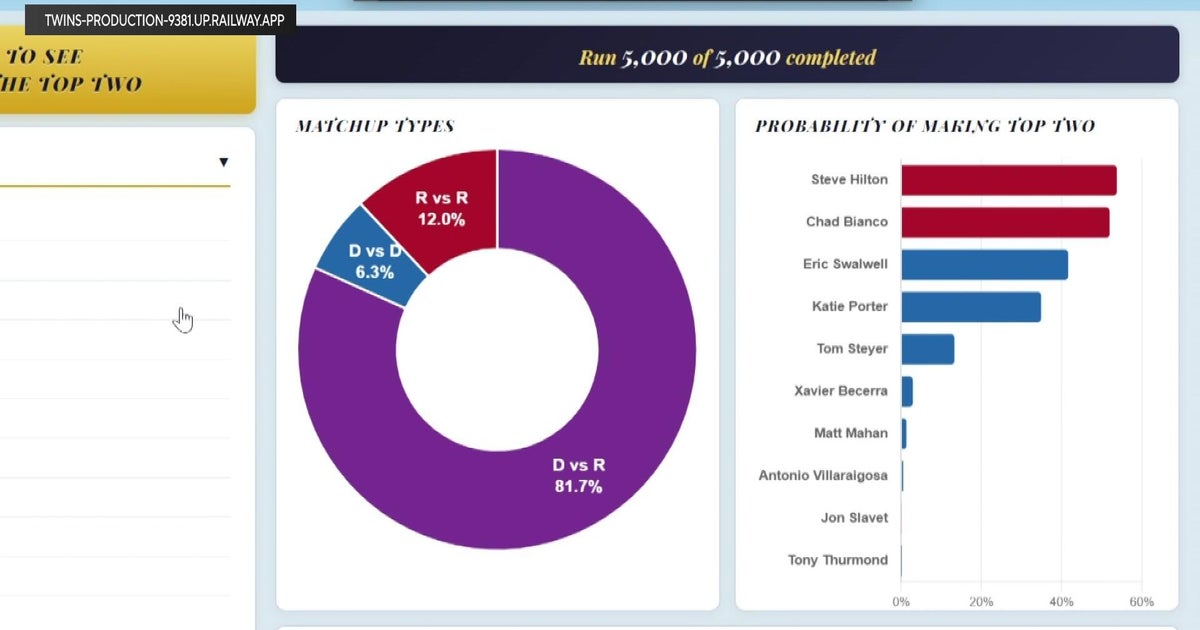Judge rules N.Y. primary process cannot be slowed down despite ongoing redistricting battle
An appeals judge on Friday declined to slow down New York's primary elections amid a battle over the state's redistricting plan, but said he would allow a lower court judge to hire an expert to draw up alternative congressional district maps in case the disputed ones ultimately get tossed.
The ruling by state Appellate Division Justice Stephen K. Lindley essentially hands the decision about the constitutionality of the redistricting plan over to a higher court, while creating one possible contingency for keeping the elections on schedule. Lindley sits on the state's mid-level appeals court in Rochester.
The state board of elections can still accept petitions filed by candidates running for office in the new districts, Lindley's ruling said.
New York's primary season was potentially upended last week when Judge Patrick McAllister, a Republican trial judge, declared that new political district maps heavily favoring Democrats had been drawn up illegally.
He ordered the Legislature to quickly redraw the district boundaries, or he would appoint a neutral expert to do it for them.
That ruling has been put on hold while the state appeals.
An appeals court panel has scheduled another hearing for April 20. The case could ultimately be decided by New York's highest court, the Court of Appeals. The primary has been scheduled for June 28.
In his ruling Friday, Lindley said he would allow McAllister to retain a neutral expert to draw up a new congressional map, if he wishes to do so, to be used if the Legislature's maps are eventually struck down.
The legislature could also draw up a contingency map, if it desires, Lindley said.
"The Legislature may begin redrawing the map right now if it chooses to do so," he said. "Or the Legislature may choose to do nothing and risk the possibility of having to live with the map drawn by McAllister's neutral experts should respondents lose before the Court of Appeals and lack sufficient time to propose a substitute map that withstands constitutional scrutiny after exhaustion of appellate remedies."
Former GOP U.S. Rep. John Faso, a spokesperson for the plaintiffs, said they were pleased with the decision, which empowers the Steuben County judge to appoint an expert, known as a court master, to draw lines. "Ultimately the Court of Appeals will decide, but we're very much encouraged by this decision today," Faso said in an email.
If they survive court challenges, the maps will mean reelection trouble for several Republican House members, while scrapping the maps could affect House Democrats' efforts to maintain their majority.
The contested lines would give Democrats a strong majority of registered voters in 22 of the 26 U.S. congressional districts New York will have in 2023. Republicans, who now hold eight of the state's 27 seats in the U.S. Congress, would only have an advantage in the remaining four districts.
The state is losing a congressional seat due to the 2020 Census data; New York fell just 89 residents short of holding onto all 27 of its districts.
Lawyers for the state Senate and Assembly assured Lindley on Thursday that the maps will pass constitutional muster.
Legislative leaders have said they don't plan to redraw the maps, and defended them as reflecting population loss in former Republican upstate bastions.
Lindley said Thursday he was chiefly concerned about the prospect of allowing voters to pick candidates based on unconstitutional maps, and said New York must be ready for the possibility of congressional primaries delayed as late as August 23 or 24.
The state judge also struck down the Assembly and Senate maps on procedural grounds.
But Lindley did not allow backup plans for legislative maps in his Friday order. He said there was "less need" for a court master to draw up new legislative maps because the lower court didn't find they were unconstitutionally gerrymandered.
So far this election cycle, courts have intervened to block maps they found were gerrymandered by Republicans in North Carolina, Ohio and Pennsylvania, and gerrymandered by Democrats in Maryland.






